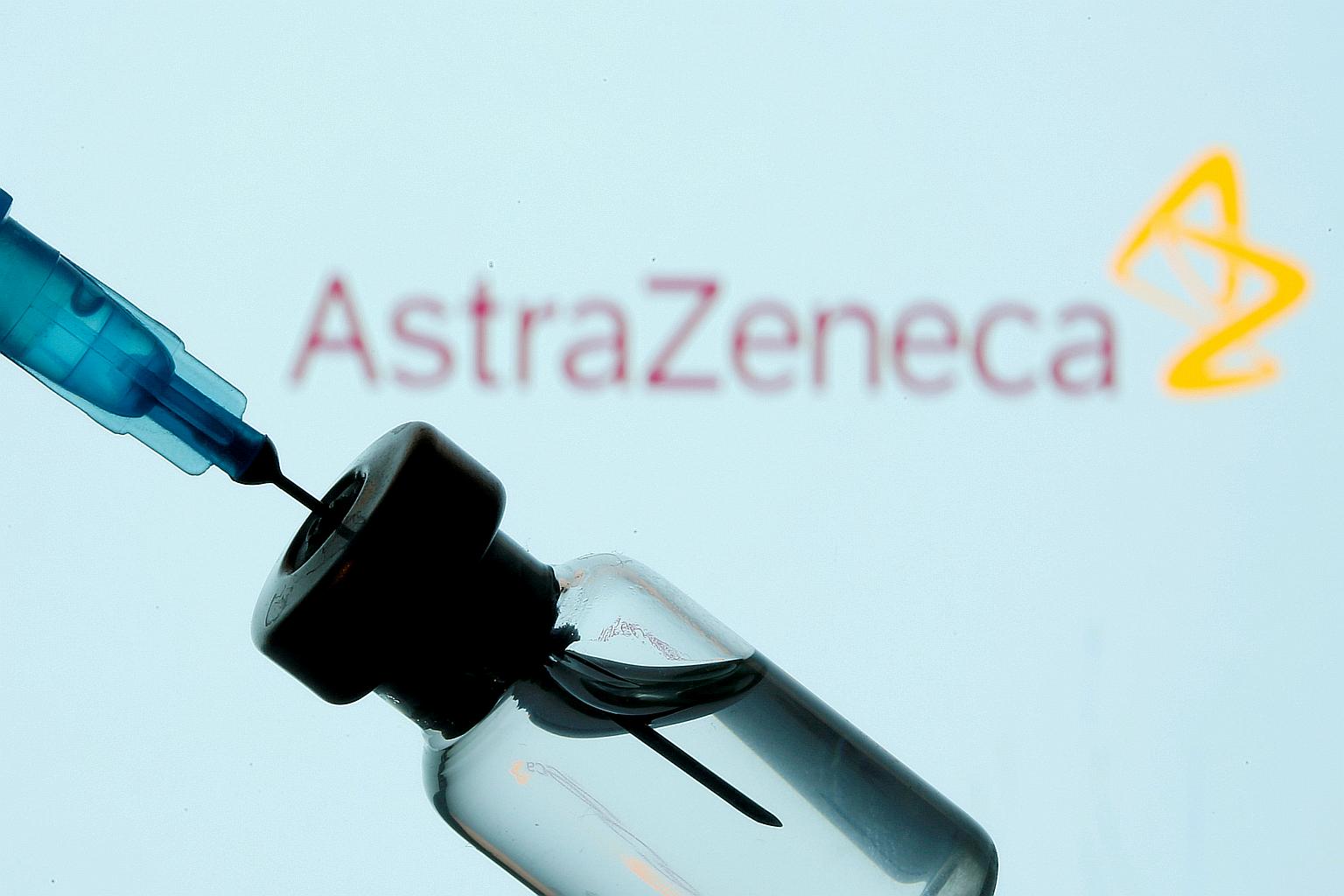AstraZeneca offers EU earlier Covid-19 vaccine supplies in Feb, no clarity on rerouting from Britain: Sources
Sign up now: Get ST's newsletters delivered to your inbox

AstraZeneca said the revised timetable was caused by production issues in Europe.
PHOTO: REUTERS
Follow topic:
BRUSSELS/VILNIUS (REUTERS) - AstraZeneca has offered to bring forward some deliveries of its Covid-19 vaccine to the European Union while the bloc has asked the British drugmaker if it can divert doses from Britain to make up for a shortfall in supplies, European officials told Reuters.
The Anglo-Swedish company unexpectedly announced last Friday (Feb 22) it would cut supplies to the EU of its vaccine candidate in the first quarter of this year, a move that a senior EU official told Reuters meant a 60 per cent reduction to 31 million doses for the bloc.
That complicated the EU's vaccination plans, after Pfizer had also announced a temporary slowdown in deliveries of its vaccine, and triggered an outcry in Brussels and EU capitals.
Two European officials told Reuters on Tuesday (Jan 26) that AstraZeneca at two extraordinary meetings on Monday (Jan 25) had offered the EU to bring forward to Feb 7 the start of deliveries from an initial plan to begin on Feb 15.
One of the sources, briefed on talks, said that AstraZeneca had also revised upward its supply goals for February compared to the cuts announced last week, but the company offered no clarity on supplies for March.
This appears to be an overture by AstraZeneca to try and keep the peace with the EU as the row over its sudden cut to deliveries escalates, damaging trust between Brussels and the drugmaker before the shot has been approved in the region.
The second EU official, directly involved in the talks, said however there was no offer to increase supplies.
AstraZeneca has quarterly supply targets. Therefore an increase in February, if not followed by a rise in March, might not constitute an overall increase in the quarter.
AstraZeneca was not immediately available for comment.
After Monday's meetings, EU health commissioner Stella Kyriakides said AstraZeneca had not offered adequate answers to questions posed by the EU.
The EU official involved in the talks also said that the EU had explicitly asked AstraZeneca whether it could divert to the 27-nation bloc doses produced in Britain, at least through March.
But the company did not answer these questions, the official said.
Manufacturers of Covid-19 vaccines must honour their delivery obligations, European Commission President Ursula von der Leyen said, adding that Brussels would establish a mechanism to monitor vaccine exports from the bloc.
"Europe invested billions to help develop the world's first Covid-19 vaccines. To create a truly global common good. And now, the companies must deliver. They must honour their obligations," the head of the EU executive said at a virtual meeting of the World Economic Forum. "This is why we will set up a vaccine export transparency mechanism. Europe is determined to contribute. But it also means business," von der Leyen added.
AstraZeneca has said the revised timetable was caused by production issues in Europe. One EU senior official told Reuters last week that the problem was at a vaccine factory in Belgium run by AstraZeneca's partner Novasep.
A spokesman for the EU Commission did not immediately answer questions on talks with AstraZeneca.
On Dec 30, Britain granted emergency approval to the shot developed by AstraZeneca and Oxford University. A decision on authorisation in the EU is expected on Friday (Jan 29).
AstraZeneca said on Monday its Chief Executive had told the EU it was doing everything it can to bring the vaccine to millions of Europeans as soon as possible.
An EU official has told Reuters AstraZeneca had received an upfront payment of 336 million euros (S$541.9 million) when the EU sealed a deal with the company last August for at least 300 million doses and an option for another 100 million. The deal was the first signed by the bloc to secure Covid-19 shots.
In response to the supply concerns, Nadhim Zahawi, the British Covid-19 vaccine deployment minister, said Britain and the European Union should both get the vaccines they have ordered and it is wrong to respond to supply problems with restrictions.
Zahawi said that he was confident the manufacturers of the three Covid-19 vaccines approved for British use, Pfizer, AstraZeneca and Moderna, would be able to meet their supply obligations, for both Britain and the EU.
"I'm very confident that Pfizer... will deliver for the EU and will deliver for the UK, as will AstraZeneca," Zahawi told Times Radio. "Vaccine nationalism is the wrong way to go. No one is safe until we're all safe."

